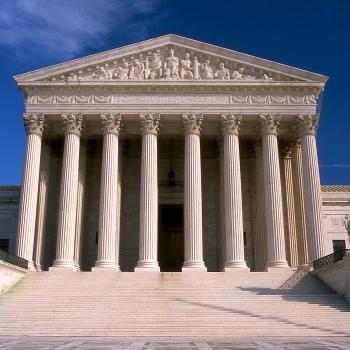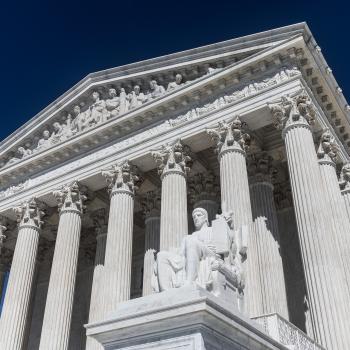This section is long. For that reason, I’m adding section headings. That way you can tell what’s where and skim if you need to.
Jody Gets Flirty
This week we’re at the Lansdowne Resort Hotel for the depositions of the Thomases, the Garvises, and Laura Frasier. This is an actual place, by the way. Unsurprisingly, the pictures on their website make it look rather pricey.
The silver Jaguar pulled to a stop under the covered entryway just as Cooper opened the door to enter the grand lobby of the Lansdowne Resort Hotel. Randolph Suskins exited the car and nodded politely in the direction of his legal adversary, while taking the valet parking ticket from a young man with a trim haircut and a forest green uniform. The parking attendant quickly scampered around to the other side to open the door for a woman passenger who waited patiently in the front seat.
First, in case we hadn’t noticed, Suskins is very rich and cares very much about appearances. But we already knew this. (As Farris lets drop later in the passageway, Cooper simply parked his car, he didn’t use valet parking.)
I’ll tell you what it is I’m skeptical of. It’s Jody that’s in that car, waiting for the door to be opened. I don’t think Jody would have waited. Jody doesn’t seem to be the waiting kind of person.
Cooper paused in the doorway, waiting to shake hands with Suskins and his co-counsel. The car door opened to reveal a pair of shapely legs swinging out of the camel-colored leather bucket seat onto the pavement. Jody Easler slid elegantly out of the Jaguar and turned to pull the seat forward so that Melissa VanLandingham could climb out of her uncomfortable position in back.
Why is Melissa stuffed in the back? And why are we emphasizing how uncomfortable her seat is and how hard it is for her to get out? Is Melissa always getting the short shrift or something?
Also, why is Jody even here? Is it normal for an ambassador to be present in depositions like this? Jody isn’t the one who is bringing the case. The Children’s Defense Fund and the National Education Association are bringing the suit. Jody is Deputy Attorney General, UN ambassador, and director of the National Commission on Children.
Almost as soon as they’re out of the car, Jody begins being very friendly toward Cooper—even flirty.
“We’re going to have to stop meeting like this, Mr. Stone,” she said, with a laugh in her voice.
“Good morning, Ambassador Easler,” Cooper replied politely.
“Jody, please,” she corrected. “We are not in Washington or Geneva, thank goodness, and so just let me be Jody for the morning, OK?” Her voice exuded pure friendliness.
“Oh, OK … Jody,” he said, a bit bewildered.
And it goes on like this. A lot.
There are all sorts of weird back-and-forths here, as Cooper and Randolph try to one-up each other. Cooper asks whether this is all of Randolph’s party—whether there are only the three of them today—and Randolph reminds Cooper that the reason they’re doing the deposition at the hotel and not in Cooper’s office is that Cooper’s office isn’t big enough to fit everyone, so no, there are more of his lawyers coming, they just didn’t all fit in one car.
Randolph’s frostiness is obvious enough that Jody begins rolling her eyes at him.
As they walk to the conference room, there’s more odd banter between Cooper and Jody. Did he grow up here? Jody asks. As they enter the room, Easler whispers to Cooper: “OK, ready to put on your formal face?”
It’s odd. It’s out of place.
I’m all for people being friendly, but they’re on two opposite sides of this court case, and Cooper didn’t do anything to bring on this camaraderie-inducing friendliness in Jody. What is Jody’s game, exactly? Is she just sick of everyone else’s stuffiness? (Not that I’d blame her, entirely.)
Farris tells us that in the conference room, the Thomases and Garvises are intimidated at having “seven opposing lawyers and a U.S. ambassador in the room.” Again I ask, why is Jody there? Is it normal for ambassadors to sit in on depositions? Perhaps she’s doing it because her specialty area is children’s rights and this is the first case being tried under the U.S. directly involving the U.N. Convention on the Rights of the Child. But couldn’t Farris clarify that?
“Mrs.” Thomas Talks Spanking
And we are off to the deposition! Deanna is first.
“Do you spank your son, Layton?”
“Yes, sometimes.”
“When was the last time you did this?”
“Last Sunday afternoon, as I recall.”
“Did you use an implement to beat your son?”
“I didn’t beat my son, Mr. Suskins, sir. I spanked him.”
“Ms. Thomas—”
Deanna interrupted. “Sir, I will ask you to call me Mrs. Thomas if it is not too difficult for you. We are in Virginia, not Washington, D.C., and many married women in Virginia still like to be called ‘Mrs.,’ not ‘Ms.'”
As you can see, it’s going swimmingly.
I’m curious about protocol on Randolph’s quick switch of beat for spank, given that he did use the word spank first. But as we’ll see, Randolph is going to have lots of fun playing fast and loose with words in this deposition.
Deanna says that the difference between beating and spanking is that “beating implies a cold heart” while “spanking implies, to me, a loving heart, one that wants the best for the child.” I find this definitional distinction unsurprising. It is what I was told growing up as well. This distinction, of course, glosses over the fact that both involve intentionally inflicting physical pain on a child.
Randolph asks Deanna if she would stop spanking if ordered to stop under the U.N. Convention on the Rights of the Child. She says she would not. She says she would not stop even if a U.S. court ordered her to stop, and that she would not even stop if she was threatened with having Layton removed from her custody. “I will not stop because God directs me to discipline my children in this manner,” she says adamantly, thought not without some trepidation.
“Perhaps we would move to another country.”
“But every nation in the world has also ratified the treaty, Mrs. Thomas, except Somalia. Would you go there?”
“You mean you can’t spank your own child anywhere in the world?”
“No, Mrs. Thomas, you may not.”
This is not accurate.
We’ve covered this before, but the U.N. Convention on the Rights of the Child does not de facto ban spanking, and most countries that have signed the treaty do permit spanking. Would I like to see spanking eliminated? Yes, absolutely. But, as noted before, exactly what the treaty dictates in the area of spanking is a matter of interpretation.
The Homeschool That Wasn’t
At this point Randolph moves on to questions about homeschooling. It is here we learn that Deanna homeschools under the religious exemption. This is telling.
Virginia allows parents to homeschool in one of two ways, but it’s not actually meant to be a dual system. Every parent who homeschools is supposed to homeschool under Virginia’s homeschool law. This law requires annual assessments composed of a standardized test or a portfolio review. It’s actually a fairly thorough law, all things considered. However, not every homeschool parent uses it.
After the Supreme Court decided in Yoder that Amish parents didn’t have to send their children to high school, the Virginia legislature created an exemption from the compulsory attendance laws for families with a religious objection to compulsory education. This is not a religious objection to public education. It is a religious objection to any education.
No parent who intends to teach their child at home should be using the religious exemption. That is not what it is for. It was intended for groups like the Amish who have a religious objection to, say, the very idea of high school education (i.e. not an objection to public high school—an objection to high school level academic instruction).
Deanna and Rick are essentially informing the Virginia government that they object to the requirement that they must have their child educated at all (through any of the various means included in the state’s compulsory attendance law, including homeschooling), and then teaching him anyway. I cannot emphasize enough that it was not set up to work this way. Homeschoolers are supposed to use the homeschool law.
Deanna tells Randolph that Layton is doing well academically:
“He is doing very well. Our achievement tests show he is testing well above grade level and in the highest percentiles in just about every subject except spelling.”
Why tell the state that you object to the idea that children must be educated at all, in order to avoid state-required testing for homeschooled students, if you are doing the testing anyway and your kid is above grade level? This makes no sense at all, and it is never explained, because Randolph apparently doesn’t know that Virginia has an actual homeschool law, or at least never asks why Deanna isn’t using it. This is a huge missed opportunity.
Randolph next asks whether Deanna knows anyone who thinks Layton would be better off in “a more traditional form of education.” She says she doesn’t know anyone who would say that, and then Randolph asks her whether it’s true that her parents think Layton would be better off “in a private school they have recommended to you.” This is seriously creepy, and Deanna understandably freaks out. She at first denies it and says that her parents only suggested enrolling Layton in a private school because they thought it world make the court case go away, but Randolph gets her to admit that she’s obfuscating, and that her parents have been saying that for years.
We are not told how Randolph knew any of this, but his goal is to argue that “if there were a review of what is best for Layton … there would be a divergence of views right within your own family.” Deanna agrees, but notes that that is only true “if you look outside of the parents to whom God has entrusted the authority over children.” Randolph gets her to admit that sometimes parents disagree on education within themselves, but I’m not sure what point he’s trying to make.
The Decentralized Southern Baptists
After this, Randolph questions Rick. I promise you that I’m skipping over a lot of mundane stuff, because this would be really boring and tedious if I wasn’t. The main thrust of Randolph’s questions to Rick have to do with the religious underpinnings of spanking. Essentially, Randolph gets Rick to admit that his denomination (the Southern Baptist Convention) does not have an official position on spanking, and that there is no “authoritative interpretation of the Bible” relative to corporal punishment. How, then, can Rick claim that spanking is mandated by his religion?
“Mr. Suskins, it seems you don’t understand how the Southern Baptist church and, I guess, many other evangelical churches work. We don’t have official doctrinal papers adopted by some centralized group convened to vote on what is right or wrong this year. We just believe the Bible on matters of right and wrong and faith and practice, and many other areas of life as well. And the Bible tells usb art good discipline of children includes spanking of children.”
When pressed on the question of authoritative interpretations of the Bible, Rick states that:
“In the Southern Baptist church and many other evangelical churches, we believe in the priesthood of the believer. This means that each believer is responsible before God to study and known live according to the Word of God.”
And so on.
I’m curious how this holds up to other cases where lawyers have had to question individuals about their religious beliefs, such as cases of faith healing. Rick is right, Randolph seems not to know how evangelical churches work—he seems to be taking a more liturgical church, with creeds and councils, as his model. I’m not sure whether this is typical, or whether a lawyer tasked with asking these questions would be expected to do more homework beforehand.
What Even Is Religious Intolerance?
Randolph turns to the question of religious intolerance, and Rick gets in this zinger:
“What do you teach your son relative to other religions?”
“What other religions do you have in mind?”
“Islam, for example,” Suskins said.
“We teach Layton pretty much what Islamic parents teach their children. We teach him that Christianity is the only true way to God. Islamic parents also teach their children that theirs is the one true faith.”
Smooth, Rick. I see what you did there. I’m curious, though. Did Rick put any research into that answer? I’m curious whether there is actually perhaps variation within Islam on this point.
What follows next is an interesting exchange because it tells us a lot about how Farris views “tolerance” compared with how he thinks individuals like Randolph view it.
“How often is this attitude of intolerance taught in your church service or Sunday school classes?”
“Intolerance? What are you talking about?”
“You have just said that you teach your son that all other religions are wrong. My question is how often is Layton exposed to such intolerance?”
“Objection,” Cooper said. “You appear to be operating with a different meaning of intolerance than Mr. Thomas. Historically, intolerance has to do with the refusal to allow another religion to have legal right to exist on an equal basis. You ache asked no question that could lead you to conclude that Mr. Thomas teaches his children that Islam should be banned or suffer any legal disability.”
Suskins shook his head and smiled with his practiced look fo condescension. “Come, come, now, Counsel. History has demonstrated that if a person believes that another religion is wrong, then the natural outflow of such a belief is to seek to ban that religion, or at least that component of the other religion that manifests itself in a way that is contrary to your views.”
“Hm-m-m-,” Cooper mused. “I guess that does make sense, given your presuppositions. You are trying to use the UN treaty as a vehicle to ban religiously motivated behavior like spanking and home schooling. So for a person who thinks like that, I guess it is reasonable to suppose that other people would try to use the law to ban religious views they don’t like as well. But you have not established that Mr. Thomas thinks like that, so if you want to know if he embraces the philosophy of intolerance that is the predicate of your lawsuit, then you are going to need to ask him that directly and not merely assume that he shares your attitude.”
Yes, that’s right—Farris appears to believe that people on the Left think that merely thinking someone is wrong about something is itself intolerant, because it will inevitably lead to trying to ban that belief. The core problem here, as I see it, is Farris’ focus on belief rather than harm, which is not an emphasis that is shared on the Left.
Let me give an example. It is very true that those on the Left wants to ban faith healing as practiced on children (as well as anti-gay conversion therapy practiced on children). In each case, however, they do not want to ban the belief itself. People can go on believing that faith healing works, that’s totally fine. Instead, they want to ban the practice (as practiced on children, who cannot consent), because the practice causes identifiable and measurable harm.
Something comparable is going on here—Jody and her colleagues want to ban spanking, a specific practice that causes harm to children, they don’t want to ban fundamentalism. Now yes, they do also want to prevent the children’s church from teaching them that there is only one way to heaven—this is again because they believe that belief causes harm, I would argue that here they have gone too far, and I think most on the Left would agree with me.
It is worth noting that despite what Farris claims, Jody et al are not actually trying to ban Rick and Deanna’s religion or outlaw the belief that there is only one way to heaven and all other religions are bound for hell. They only want to bar the teaching of this belief to minors. Suskins stated that “if a person believes that another religion is wrong, then the natural outflow of such a belief is to seek to ban that religion.” But they’re not trying to do that.
Barring Rick and Deanna from teaching specific religious beliefs to their son is a threat to religious liberty, and I vehemently oppose doing this. An argument could be made that limiting what religious groups can teach their young about their beliefs is itself an attempt to ban religion—and there are historical instances where that has been true, at least in a general sense (think Native American boarding schools). However in these cases, eliminating the religion by preventing it from being taught to the next generation is generally the transparent goal. Farris has given us no reason to conclude that this entire treaty is a mere rouse to ban fundamentalist religion (although he may actually think that).
These issues can indeed become complicated. In some countries, there has been talk of banning pastors from preaching that homosexuality is sin, under the purview of hate speech laws. In this country, though, the general policy has long been to allow churches to preach things most Americans consider bigoted or wrong—for example, even during the civil rights movements churches were never barred from preaching in favor of segregation or against interracial marriage.
Where things get dicey typically involves children. What all is included in anti-gay conversion therapy, for instance? Should an anti-gay pastor be barred from counseling a gay teen if, for instance, that counseling includes statements that gay people are going to hell and claims that sexual orientation can be changed? I tend to think that we should err on the side of caution and bar specific techniques (such as those described here) rather than banning the purveying of beliefs, and simultaneously work to ensure that that teen also has access to affirming adults and accurate information.
Farris is treating this deeper conversation as a one-dimensional “gotcha” moment—the Left wants to ban biblical Christianity while Bible believing Christians simply want every religious group to have the legal right to exist. Farris ignores the fact that conservatives have worked to prevent the construction of Mosques (which rather belies his claim), or that conservatives (to return to the anti-gay comparison) banned consensual, private sexual relations between same-sex individuals and continued to support these bans until the Supreme Court struck them down in the early 2000s.
The Testy Lawyers
I need to go on, or we’ll never finish.
Suskins glared at Cooper. Shaking his head, he replied, “I thought that Virginia lawyers were better trained than to attack other counsel on a personal level during a deposition. We will have to see what the Virginia Bar Association’s disciplinary committee has to say about your little tirade, Mr. Cooper.”
I’m confused. I don’t know enough about courtroom (or deposition) etiquette to know whether Cooper was actually out of line in what he said (scroll up if you’ve forgotten). Yes, he did get heated, but Randolph wasn’t defining his terms and was creating a very confusing situation for Rick (a bait and switch he did with Deanna, too).
Interestingly, Farris has been sanctioned by a judge before, for actual reasons that I cannot recall at the moment. Farris stars in Battleground, by Steven Bates, which tells the story of Mozert v. Hawkins. Bates details at least one occasion, and maybe two (I’m trying to remember), when Farris was sanctioned for inappropriate courtroom behavior.
Laura Feels Threatened (by Jody)
Good grief this is getting long. Don’t worry, we’re nearing the end! There are only two more things of note in this chapter. Okay, three. But I’m labeling them!
Everyone takes a break for lunch, and the Thomases and Garvises are clapping Cooper on the back over his exchange with Randolph. Meanwhile, Melissa and Jody are whispering.
“What a jerk that Stone is.”
“It’s hard to believe that a guy who looks like that can be such a right-wing extremist,” the ambassador whispered in reply.
Ok. Cool.
Meanwhile, Laura has arrived for her afternoon deposition—she sits on a seat outside the conference room and watches as everyone exits the room, Cooper with Jody trailing him.
Ambassador Easler was right behind [Randolph’s associates] but paused in the doorway, waiting. Laura studied her from the top of her well-coiffed head to the elegant black slings that caressed her toes. She heard Dr. Easler laugh melodiously and turn as Cooper walked out next to her.
Laura, of course, notices. On the way to lunch, she asks about her.
“Who is that woman?” Laura asked.
“Her name is Jody Easler. She is one of the U.S. ambassadors to the United Nations. She is in charge of our delegation in Geneva and is an expert on children’s rights.”
“So she’s on the other side?” Laura asked incredulously.
“Yeah, sure,” Cooper said. “Why not?”
“Well, she just seemed so buddy-buddy with you that I thought that she must be on our side of the cases somehow.
Cooper blinked nervously, like he used to do when his mom was quizzing him about missing cookies from the cookie jar. “Well, she is definitely more friendly than anyone else on that side of the case, and I am at a loss to explain it.”
Deanna paused at the top of the long staircase leading down to the hotel’s two restaurants. “I think she thinks Cooper is cute,” she drawled.
Ok. Cool.
Laura avoids talking about Jody any further because she doesn’t want anything she says to be misinterpreted. But the seeds for future mistrust of Cooper vis a vis his interactions with Jody have been sewn, and they all be harvested.
Which is all a bit odd, given that Laura is currently in a serious relationship with one Terry Pipkin. Out of curiosity, why does Cooper get to be named something all manly like “Cooper Stone” while Terry gets “Terry Pipkin?”
Laura Is Threatened (by Randolph)
This bit is weird. I’m telling you, it’s weird.
Randolph wants to know how Laura came to be both Emily Garvis’s third grade public school teacher and her third grade Sunday school teacher, both at the same time. I’m not seeing how this is relevant to the case, but fine. Laura says that it was completely by coincidence. It’s a small community, she says. These things happen. But then she adds this:
“The Garvises had been thinking about putting Emily in a Christian school or home schooling her. But when they found out that I would be her teacher this year, they decided to opt for another year of public schools.”
“Is that right?” Suskins asked stroking his cheek. “How do you know that?”
“They told me all this last June when they got their end of the year report card for Emily, which assigned her to my class for this school year.”
“Where did you have this conversation?” Suskins asked.
“In the hallway at church.”
“Don’t you find this mixture of public school issues and church issues to be just a little troubling, Ms. Frasier?”
“No,” she said shaking her head with a puzzled look. “Why would ti be troubling?”
“You have just admitted that you had a conversation about Emily’s public schooling at church. Don’t you consider that to be an improper mixture?”
“I would never have thought of it that way, Mr. Suskins.”
“Don’t you respect the separation of church and state? A conversation about public school matters while in a church seems to be an inherent mixture of church and state.”
What in the what now? I don’t know anyone who would call laypeople talking to each other about where they’re sending their kids to school in the hall after church a violation of the separation of church and state. This is bizarre. The only way to square any of this is to imagine that Randolph is a corporate lawyer with decades of experience getting wealthy friends’ business dealing through and not one bit of experience in constitutional law or anything else relevant.
Laura responds that they live in a small community store and that she sees the parents of her students in a variety of venues, from church to the grocery store, and that talking to someone in a church isn’t “a mixture of church and state” any more than talking to someone at Safeway “is a mixture of groceries and state.” Randolph disagrees.
“Well, Ms. Frasier, perhaps your school superiors should give you some direction explaining the constitutional difference between grocery stores and churches. We may pursue that later. But that is for another time. Today my concern is this—“
At this, Cooper breaks in. He accuses Randolph of intimidating a witness, and it looks very much like that is exactly what he did. I almost want him to actually do it, though—it’s not like the local school officials are going to do anything but laugh in his face. But then, that’s the intimidation part—Randolph likely doesn’t plan to ever actually do such a thing, but putting the idea that he might go to her superiors out there keeps Laura in the hot seat.
Cooper demands a statement, in writing, that neither Randolph nor any of his “army of little helpers here” will contact “any person connected to the Loundoun County Schools” about Laura. Randolph says that’s ridiculous, so Cooper stands and says that he and Laura are leaving and the deposition is over, and that he is going to seek “a protective order from Judge Holman barring you from contacting the school district regarding Miss Frasier.”
Randolph threatens to have Cooper sanctioned for delaying the deposition. Laura grabs Cooper’s arm, scared. A standoff ensues. Finally, Randolph turns to Rachel Hennessey, the children’s Guardian Ad Litem, who has been in the room during all of the day’s depositions but hasn’t said a word. She has worked with Judge Holman, and tells Randolph that the judge won’t grant his sanction, but he would definitely grant Cooper’s protective order. Randolph relents.
Cooper, of course, comes off as a hero, the valiant defender of his client. Randolph comes off as an evil villain. I wonder though, what exactly makes Randolph tick. Clearly, he’s status-hungry. But why did he take this case? What is he in this particular case for—what’s in it for him? We know he has a beef with Cooper and dislikes small-own yokels, as he sees them, and religious fundamentalists, but we don’t know much more than that.
Kids and Hell
Next, Randolph asks Laura questions about her Sunday school curriculum, and in particular what she teaches about other religions—she says she doesn’t. When asked in, response, whether she teaches “that people from other religions were going to hell” Laura says “I don’t think of it as discussing other religions. It is just what Christians believe. ”
Interestingly, though, Farris does get to the real issues at hand. Randolph puts it like this:
“So you place this extraordinary burden on children. In fact, a double burden. First they must rescue their own souls from hell by believing what you tell them. Then you tell them that they must change the religious beliefs of every other person on earth, lest they end up in hell also. Do you think that carrying the burden for the eternal destiny of every person in the world is fair to a child and doesn’t it teach them religious intolerance? Do you really believe that such a view is in the best interest of the child?”
Randolph doesn’t even take it as far as he could. It’s not just every person on earth, it’s classmates too. The fear that your friends will go to hell can be very real to a child—especially when that child is told she should be preaching the gospel to her friends, and inviting them to church and Bible club and such. Teaching kids that their friends will be tortured in hell for eternity because their parents go to the wrong church can be very traumatic.
Farris offers his own justification, in Laura’s words:
“Yes, Mr. Suskins, I believe, in fact, that it is in the best interest of the child. It is the best for the child because it reflects the truth. The truth is that some people die young. It is sad, but it is true. And if a person dies without Christ that person is going to hell. So as to the first half of the so-called double burden you say we are placing on the child, it is not a burden but a lifeline. And as far as the second half, telling others about Jesus, it is a simple act of love. I think that it is always right tot teach children to do things that show genuine love toward others. If we know something that will save another from hell, it is the most loving thing in the world to tell people. You may call it intolerance if you will, Mr. Suskins, but I call it love.”
See, the problem with this whole conversation is that that is the right answer—if hell is real and every human who does not pray the sinner’s prayer really is doomed to eternal torture. If one starts with with that assumption, children absolutely do need to be told that their souls are in jeopardy, and that everyone else’s are too.
One place some of this breaks down is that it is very unusual for an evangelical Christian to actually act like this is true. Most evangelical Christians do not evangelize every person they come upon. Most don’t devote their lives to missions and to saving souls. If all humans are doomed to literal, eternal torture apart from the gospel, what is the point of buying a house, or of going to work every day as an accountant, or of playing a board game with family?
In some sense, adult evangelicals learn to sublimate their belief in a real and eternal hell to the more mundane realities of life. Children aren’t always able to do that. To children, things like this can appear even bigger and more looming, somehow scarier, than they do to adults (although it does depend on the individual child).
Randolph believes that teaching children that all who do not belong to their religion will be tortured forever in hell is harmful because it creates emotional angst and turmoil. Laura believes that adults should teach children that all who do not belong to their religion will be tortured in hell because it is true.
There is, of course, another way that has not been discussed. I can imagine a world in which adults teach children about Jesus, and that he is their savior, without especially emphasizing hell—even if they believe that all those who are not saved will go to eternal torture. I remember being told, sometimes, that there were some adult things I didn’t need to know about because they were too heavy for me to carry until I was older. These were generally things like the horrors of wars being fought, or what actually happened to people who were kidnapped. But I could see including hell in this.
But on some level, Randolph and Laura are not really arguing about how to mitigate harms to children. They’re arguing about who is Right. And given that Farris, as a bible believing Christian, very much believes that he is universally and absolutely Right, this lack of nuance or real and meaningful discussion should not be surprising.
I have a Patreon! Please support my writing!















